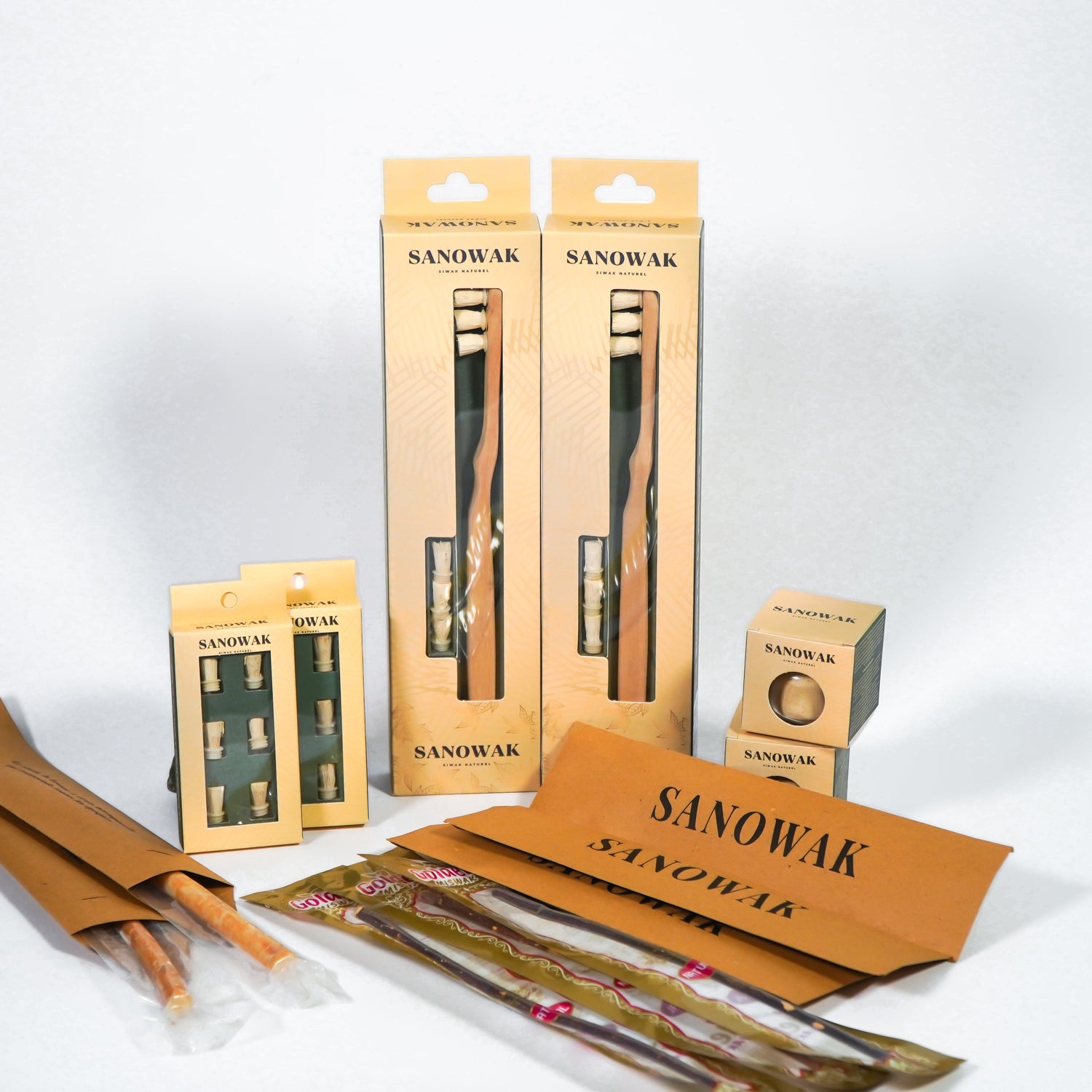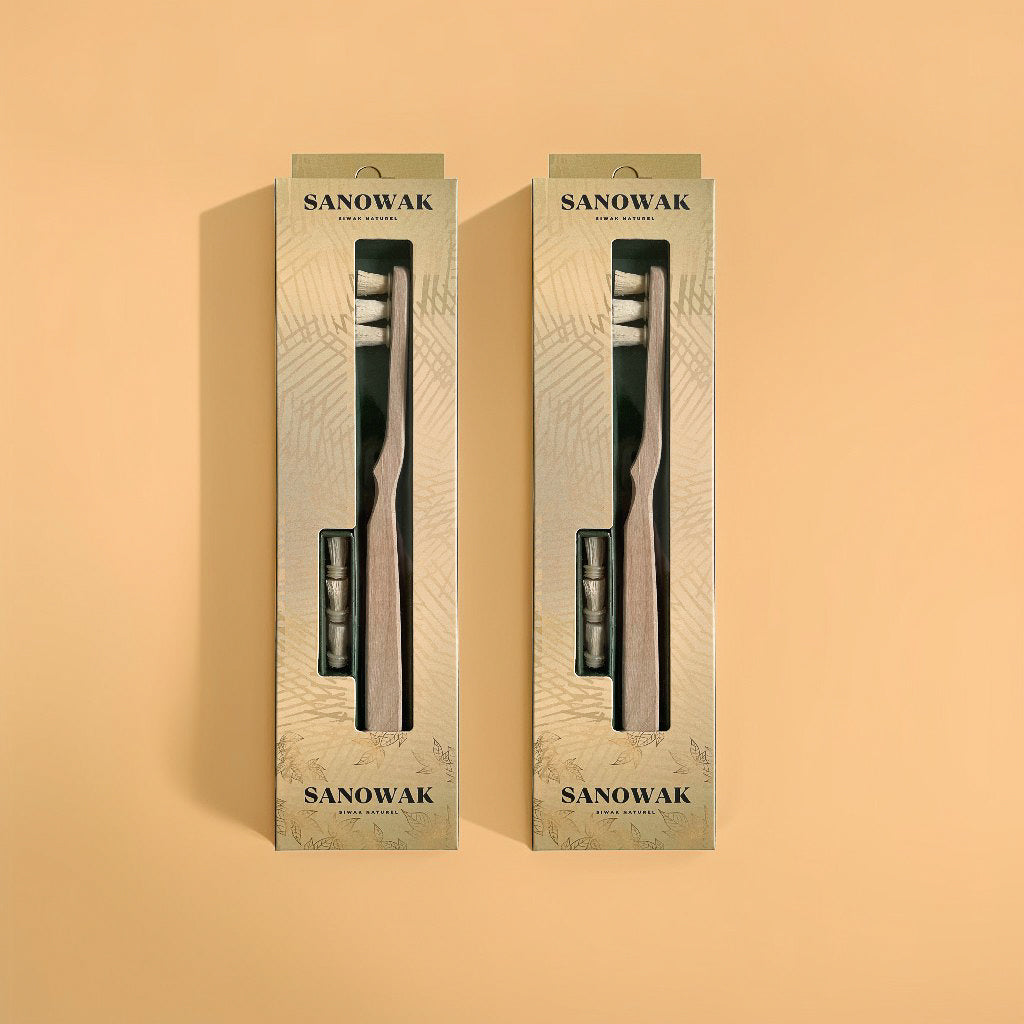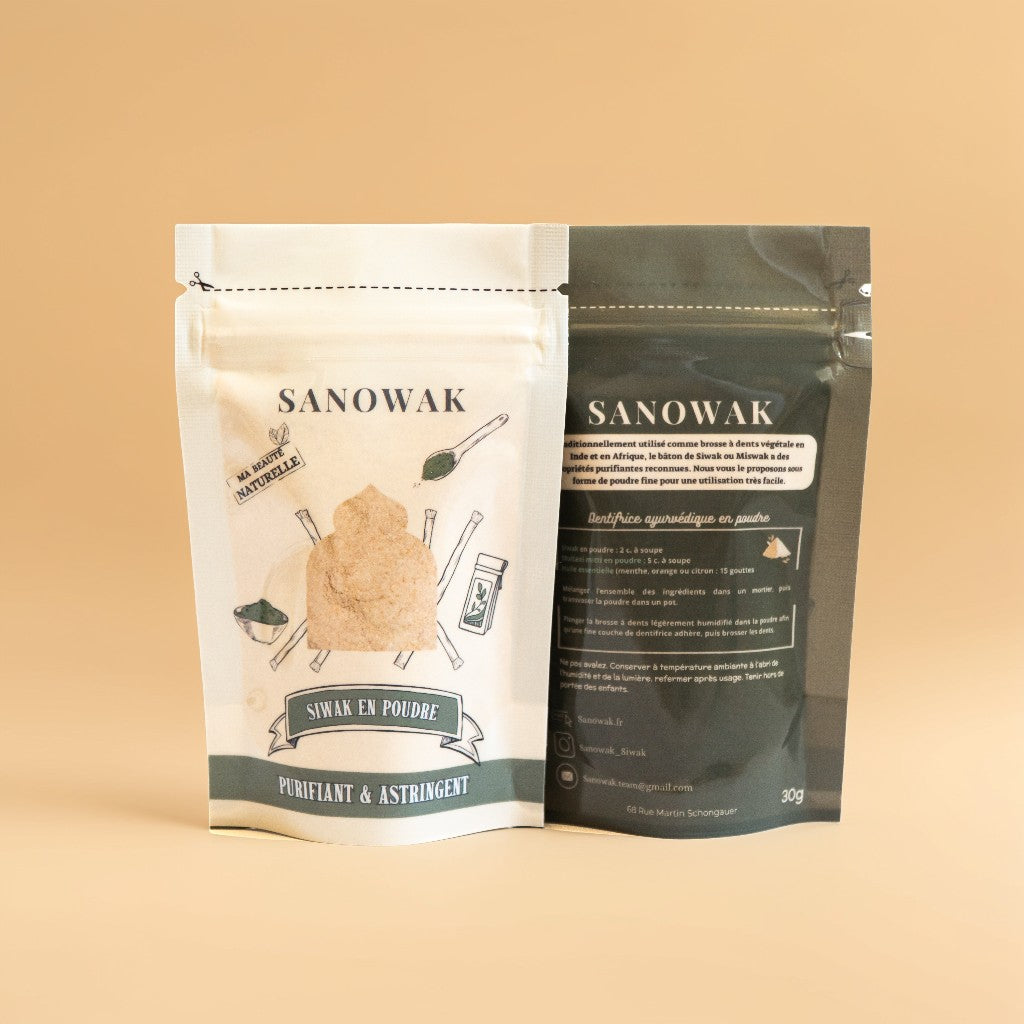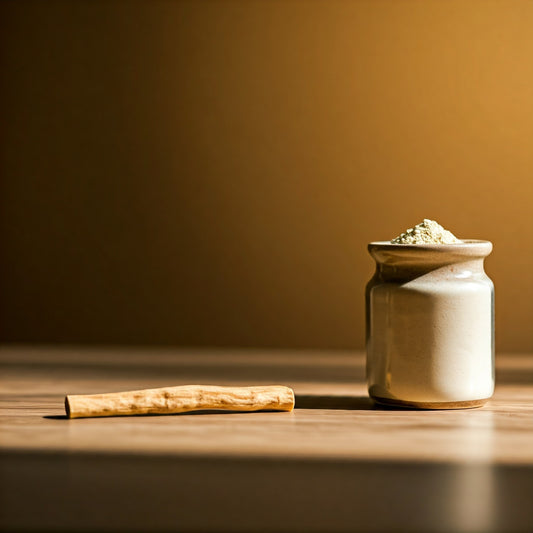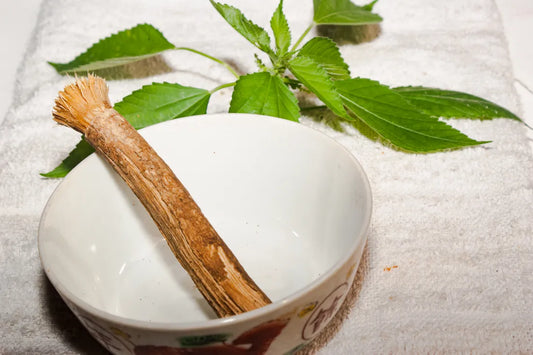
Siwak in Islam and Sunnah
The siwak, also called a dental stick, is much more than just an oral cleaning tool in Islam. Indeed, its use is strongly recommended by the Sunnah and it is appreciated for its hygienic and spiritual virtues. Used for centuries, the siwak embodies a prophetic tradition deeply rooted in Muslim practice. In this article, discover how and when to use the siwak, according to Islamic tradition, and why this simple act brings so many benefits.
The importance of siwak in the Sunnah
In Islam, the siwak is closely linked to the purification of the mouth and to divine satisfaction. Indeed, a hadith of Aisha (May Allah be pleased with her) reports that the Prophet Muhammad (blessings and peace of Allah be upon him) said: "The siwak is a purification for the mouth and a satisfaction for the Lord" (Reported by Al-Bukhari). Thus, the use of the siwak represents much more than a gesture of hygiene: it is an act of piety that expresses the desire to please Allah.
Moreover, another hadith from Abu Hurayrah (may Allah be pleased with him) reports the Prophet (peace and blessings of Allaah be upon him) saying: "If I did not fear imposing too great a burden on the people of my community, I would order them to rub their teeth with a siwak before every prayer." (Reported by Al-Bukhari and Muslim). This statement shows the importance of the siwak in Islamic practice, demonstrating that this stick is a powerful Sunnah for those who want to follow closely the Prophetic habits.
When to use siwak according to the Sunnah
Although the use of the siwak is encouraged at any time of the day and night, Islamic tradition particularly recommends the siwak in certain specific situations. Scholars identify several key moments when its use is even more beneficial:
Before prayers and ablutions
Before each prayer, it is highly recommended to use the siwak. Indeed, the Prophet (blessings and peace of Allah be upon him) said: "If I did not fear imposing too heavy a burden on the people of my community, I would order them to rub their teeth with a siwak before each prayer" and in another version: "each time they perform their ablutions." This gesture symbolizes purity and respect before Allah, thus strengthening the bond with Him.
At the entrance of the house
According to a hadith reported by Aisha, the Prophet used to use his siwak as soon as he returned home to meet his family. She reported that when asked what the Messenger of Allah did first when he arrived home, she replied: "As soon as he entered his house, he used his siwak." (Reported by Muslim). This hadith shows that the siwak helps to maintain good breath and a pleasant presence in the presence of one's relatives.
When waking up
According to Hudheifah Ibn Al-Yaman (May Allah be pleased with him), the Prophet used to rub his teeth with the siwak as soon as he woke up, even in the middle of the night. This gesture done as soon as he woke up allows one to start the day in a state of purity.
In case of bad breath
The use of siwak is recommended when you experience bad breath, whether it is caused by odorous foods or by hunger or thirst. Siwak, being a natural way to purify the mouth, is ideal for eliminating unpleasant odors and keeping breath fresh.
Before entering a mosque
The use of the siwak before entering the mosque is also encouraged. Allah says in the Quran: “O Children of Adam! Wear your finery (your best clothes) in every mosque.” (Surah Al-A'raf, verse 31). By purifying oneself before entering a place of prayer, the worshipper thus honors the house of Allah and respects the presence of the angels and other worshipers.
Before reading the Quran
Before reading the Quran or participating in dhikr (invocation of Allah) sessions, it is recommended to use the siwak. This allows one to honor the divine word by having clean and pleasant breath, thus respecting the sacredness of the act.
Siwak during fasting: what does the Sunnah say?
The use of the siwak is permissible for the fasting person during Ramadan, even in the middle of the day. Although some scholars recommend limiting it to the morning hours, many hadiths support its continued use throughout the day. The Prophet did not make any time restrictions regarding the siwak during the fast, and thus the practice remains valid even in the afternoon.
Regarding the argument of the hadith: "The smell of the mouth of the fasting person is more pleasing to Allah than that of musk," the latter refers to the smell that naturally occurs during fasting due to the emptiness of the stomach and not to a lack of cleanliness. Thus, the siwak does not diminish this spiritually appreciated smell in any way, and the scholars affirm that it remains a recommended Sunnah for the fasting person, regardless of the time.
Types of Siwak Recommended in Islam
Arak wood: the traditional choice
Scholars agree that arak wood (Salvadora persica) is the best choice for the siwak. This wood, known for its pleasant fragrance and flexibility, allows for deep cleaning without harming the gums. The hadith of Abdullah Ibn Mas'ud (may Allah be pleased with him) says: "I used to pick siwaks of arak wood for the Messenger of Allah (blessings and peace of Allah be upon him)..." (Reported by Ahmad). Alternatively, other woods, such as olive wood or even date leaves, are considered acceptable for brushing teeth.
Flavored siwaks
Flavored siwaks, such as those with lemon or mint flavor, are permissible as long as they are not harmful. However, scholars recommend avoiding flavored siwaks for fasting people so as not to alter the fast with artificial flavors, thus preferring natural wood.
How to use siwak according to the Sunnah
The Prophet (blessings and peace of Allah be upon him) showed us a simple and effective method for using the siwak. It is recommended to:
- Use the siwak widthwise : Rubbing the teeth widthwise reduces the risk of injury to the gums.
- Start with the right side : Tradition dictates that one begins with the right side, respecting order and righteousness in the acts of purification.
- Using the Right Hand : Although some scholars prefer the left hand for removing impurities, many prefer the right hand for acts of purification and piety, in accordance with the Sunnah.
- Keeping the siwak clean : It is recommended to wash it after each use to avoid food residue, according to the hadith of Aisha who said: “The Prophet (blessings and peace of Allah be upon him) would rub his teeth and give me the siwak to wash it. I would use it and then wash it before giving it back to him.” (Reported by Abu Dawood).
Conclusion
The use of the siwak, deeply rooted in the Sunnah, is much more than a cleansing gesture. It represents an act of purification recommended by the Prophet (blessings and peace of Allah be upon him), with many spiritual and physical benefits. Whether before prayer, upon waking up, upon entering the home, or in preparation for reading the Quran, the siwak embodies a simple but meaningful ritual to stay close to Allah.
